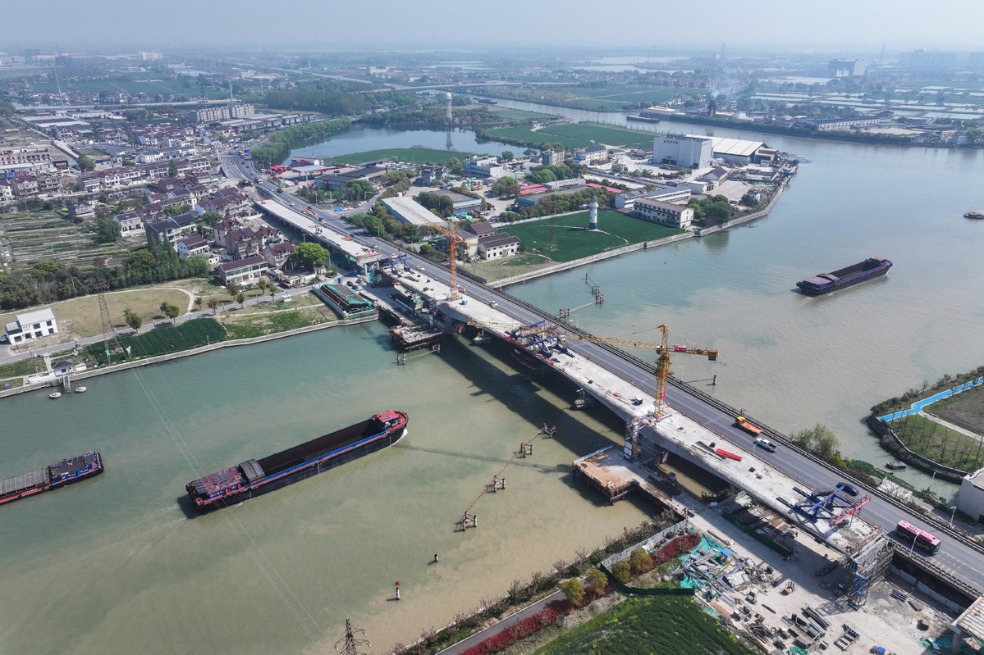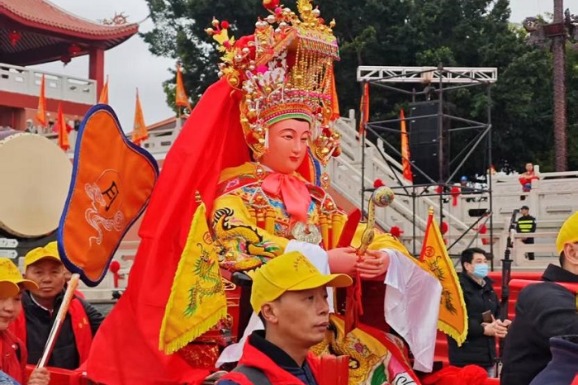Supervision key to governance
Deputy's canteen visit shows oversight can ensure implementation of laws

One of the major tasks carried out by Wang Zunyi, a deputy to the Xiangyang people's congress in Hubei province, over the past few weeks was conducting an inspection tour of community elderly care service facilities.
His first stop was a canteen in Hanjiang Beilu community in the heart of Xiangyang. When he arrived at the dining room at noon on Oct 9, a number of seniors were chatting while enjoying their meals.
"It just takes me a few minutes to walk from my home to the canteen," Meng Fanzhi, 65, told Wang. "The food here is relatively light, suitable for the elderly, and the price is also cheaper than other restaurants."
Wang, who is also a member of the Xiangyang people's congress' social development affairs committee, said, "For seniors, especially those not good at cooking or ordering food online, the convenient, healthy and affordable dining service is a great choice."
Considering there will be long-term demand for dining services due to the growing aging population, he suggested local government agencies provide more policy and financial support in this field to ensure the sustainable development of community canteens.
During his inspection tour of nursing homes and community clinics last month, he also called for further education and training for workers in the elderly nursing sector to improve the quality of care.
Wang said learning about the works of government departments through his inspections and then offering them suggestions is his duty as a deputy, and it's one way the city's people's congress and its standing committee exercise their oversight power bestowed upon them by the country's Constitution and laws.
Oversight by people's congresses is an important part of China's supervisory system. Such oversight is carried out by organs of State power on behalf of the people with legal force.
In China's political system, the people exercise State power through the National People's Congress, the country's top legislature, and people's congresses at the provincial, city, county and township levels, ensuring that their interests are reflected in the decision-making process. This year marks the 70th anniversary of the establishment of the NPC.
While overseeing the work of governments, courts and procuratorates, people's congresses at all levels and their standing committees also have the power to supervise the implementation of laws to guarantee they are consistent with the Constitution.
In addition to inspection tours, the power of supervision can be exercised by deliberating government work reports, reviewing normative documents, including judicial rules and administrative regulations; and urging governments, courts and procuratorates to make further explanations for special issues.
On Nov 8, the NPC Standing Committee adopted a decision on amending the Law on Supervision by the Standing Committees of the People's Congresses at All Levels, with optimized supervisory flow and further specified supervisory content. The law took effect that day.
The amended law stipulates that standing committees of the people's congress at each level should make a supervisory plan every year, clarifying that they can assess the implementation of laws through methods such as inspections, seminars, third-party evaluations, questionnaires and random checks.
It also formalizes the practice of local governments reporting on environmental progress and accountability, as part of China's efforts to enhance environmental oversight.
Additionally, it mandates that governments at the county level and above and the State Council, China's Cabinet, should submit reports on government debt management to their respective people's congress standing committees.
Innovative supervision
Xu Anbiao, an official with the NPC's Constitution and Law Committee, stressed the significance of oversight power, saying "it's an inevitable requirement for improving the people's congress system and realizing the whole-process people's democracy."
In an article he posted in August in Study Times, a journal of the Party School of the Communist Party of China Central Committee, he noted that government oversight has focused more on socioeconomic problems that people have been concerned about since the 18th National Congress of the CPC in 2012, with some innovations in supervisory methods made.
The innovative move initiated by the Xiangyang people's congress standing committee was to set up six observation sites across the city to learn about public concerns with social development affairs and collect people's opinions.
"The latest inspection came after many residents visited our observation sites and asked us whether the city could increase and optimize community elderly care services," Wang said.
Some people pointed out that the number of sports facilities and canteens for the elderly in residential areas are insufficient, while others questioned the professionalism of nursing care workers, with some requesting door-to-door services for those with mobility difficulties, according to Wang.
"What I learned at the observation sites became the focus of my latest inspection, making supervision more targeted," he added. "Such oversight will also be conducive to solving people's problems in work and life more effectively."
Data provided by the Xiangyang people's congress standing committee in early October showed that it has solicited more than 120 opinions from the outreach stations since the beginning of this year, mainly covering people's livelihoods. Such stations serve as areas where the public can share their concerns and opinions with congressional deputies.
In March, when Zhao Leji, chairman of the NPC Standing Committee, delivered a work report to the annual session of the NPC, he said that oversight by people's congresses had been continuously improved.
He revealed that 35 supervisory activities had been prepared this year, including reviews of reports related to elderly care and the private sector, and inspection tours to see whether the Intangible Cultural Heritage Law was being implemented effectively.
He said that a few laws would be revised to strengthen the oversight system, adding that more solid steps should be taken to make supervision more effective and binding to respond to public concerns and serve the country's high-quality development.

See more by scanning the code.
- Anti-graft chief stresses high-quality disciplinary inspection for Chinese modernization
- Chinese icebreaker returns to Shanghai after polar research
- Pingwang Bridge under construction in China's Jiangsu
- Fairness sought for relic sites, farms
- Report medical insurance fraud, receive reward
- Standards aim to make home appliances senior-friendly



































